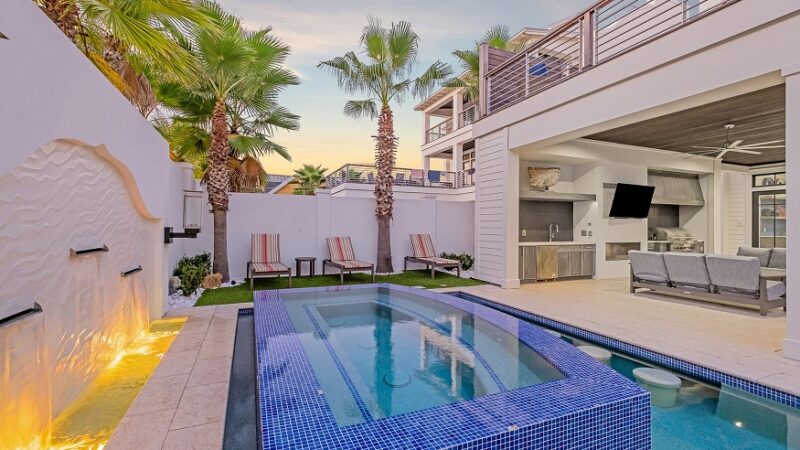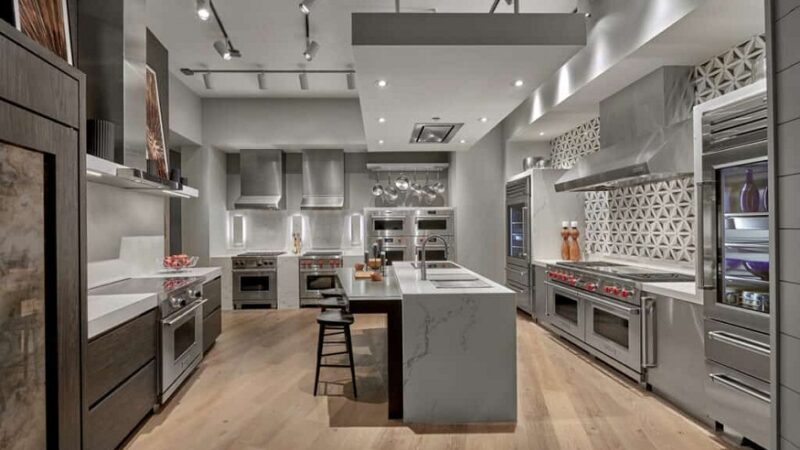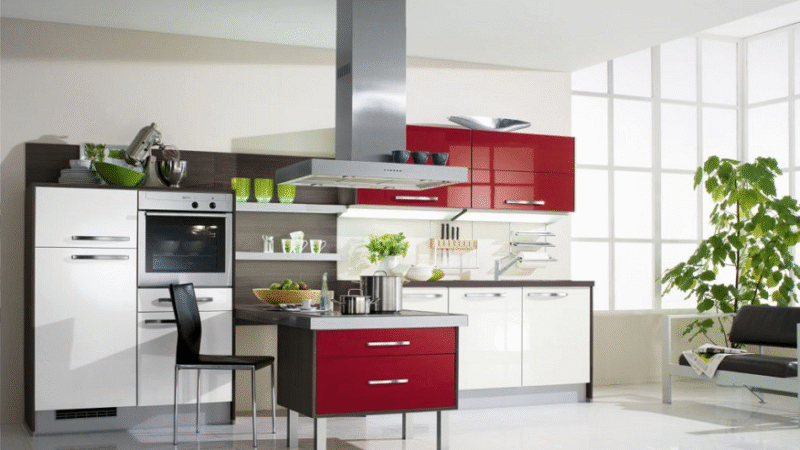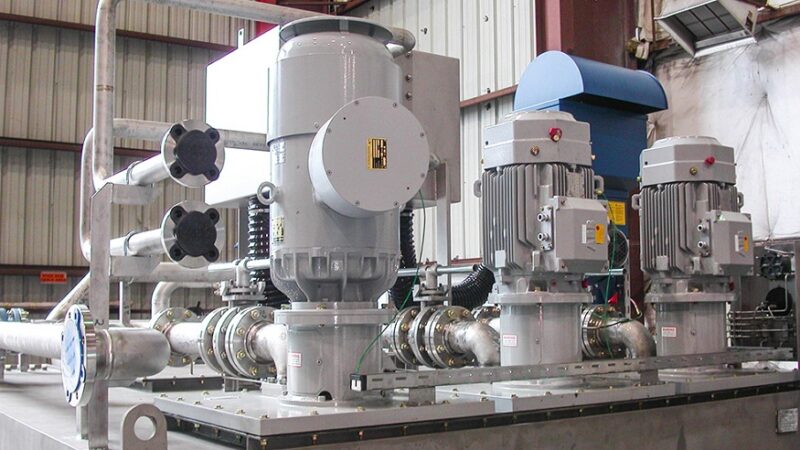Exploring the Differences: Granite vs. Quartz Countertops for Every Budget
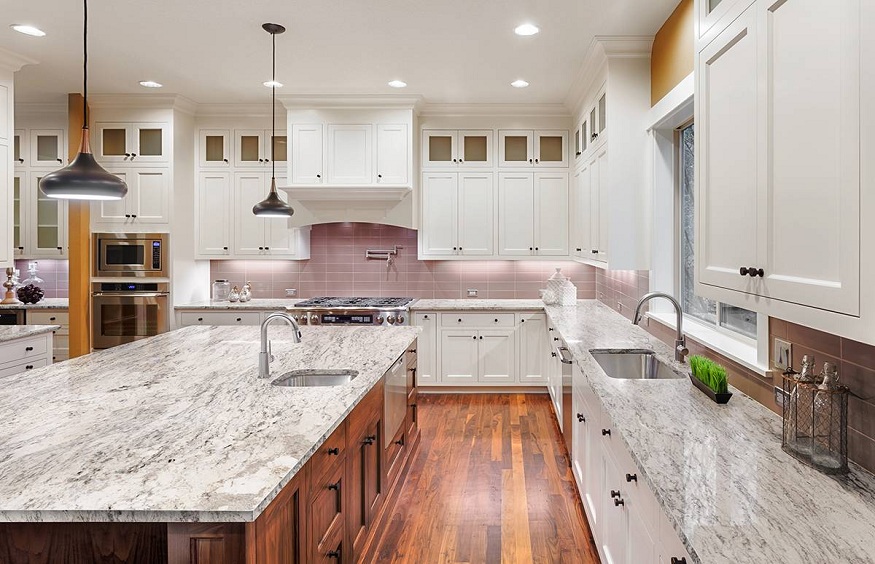
When it comes to choosing countertops for your kitchen or bathroom, two materials dominate the conversation: granite and quartz. Both offer beauty, durability, and versatility, but there are distinct differences between the two. Understanding these differences is essential to making an informed decision that fits both your aesthetic preferences and budget. In this post, we’ll explore the key differences between granite and quartz countertops, breaking them down by factors such as cost, maintenance, durability, and design flexibility. By the end of this guide, you’ll have a clearer understanding of which countertop material is best suited for your project and your budget.
Granite Countertops: The Natural Stone Option
Granite is a natural stone that is formed through a process of cooling magma beneath the Earth’s surface. It’s been a popular choice for countertops for decades, and for good reason. Granite is celebrated for its natural beauty, strength, and timeless appeal. However, it’s important to understand both the pros and cons of granite before making your decision.
Pros of Granite
- Durability and Strength: Granite is incredibly durable. It’s resistant to scratches, chips, and heat, making it an ideal choice for high-traffic areas such as kitchens. As a natural stone, granite has a unique pattern, meaning no two slabs are alike, which adds to its aesthetic appeal.
- Natural Beauty: The natural veining, colors, and textures in granite countertops provide a unique, luxurious look. You can find granite countertops in a variety of shades, from classic neutrals to vibrant hues, making it easy to find a design that matches your style.
- Increased Home Value: Granite countertops can raise the resale value of your home. The material is often associated with high-end homes and adds a touch of luxury to any space, making it a good investment in the long run.
Cons of Granite
- Cost: Granite is generally more expensive than quartz, especially if you opt for high-end varieties. The cost of granite can vary significantly based on factors like origin, pattern, and thickness, but it’s typically priced per square foot and may include additional costs for installation and edge treatments.
- Maintenance: While granite is relatively low-maintenance, it does require sealing to prevent stains and moisture from penetrating the stone. Some types of granite may need resealing every 1-2 years, adding to the overall cost of ownership. Additionally, granite is porous, meaning it can absorb liquids and harbor bacteria if not properly sealed.
- Weight: Due to its density, granite can be quite heavy, requiring professional installation and sturdy cabinets to support its weight.
Quartz Countertops: The Engineered Alternative
Quartz countertops, unlike granite, are not made of natural stone. Instead, quartz is an engineered product made from natural quartz crystals combined with resins, polymers, and pigments. This process allows manufacturers to create highly customizable countertops with more consistency in color and pattern compared to granite.
Pros of Quartz
- Low Maintenance: One of the main advantages of quartz over granite is its low-maintenance nature. Unlike granite, quartz does not need to be sealed, as it is non-porous. This makes it resistant to stains, bacteria, and mold, requiring only a simple cleaning with soap and water to maintain its appearance.
- Durability: Quartz is an incredibly durable material. It’s resistant to scratches, chips, and stains, though it’s important to note that quartz is not completely heat-resistant like granite. Placing hot pots and pans directly on a quartz surface can cause damage.
- Design Flexibility: Since quartz is engineered, it offers a wider range of design options. Manufacturers can create a uniform appearance, making it ideal for modern or sleek kitchen designs. Quartz can also be made to resemble the look of granite, marble, or other natural stones, giving you the freedom to choose from a variety of styles.
- Environmental Benefits: Some quartz countertops are made from recycled materials, making them a more eco-friendly choice compared to granite, which requires quarrying.
Cons of Quartz
- Cost: While quartz is generally more affordable than granite, it can still be costly depending on the brand, design, and thickness. High-end quartz options may still rival the price of premium granite, so it’s important to compare prices and options before committing.
- Not as Heat-Resistant: Quartz is more prone to heat damage compared to granite. This means you should avoid placing hot pots or pans directly on a quartz surface, as doing so can cause discoloration or cracking.
- Appearance: While quartz offers a variety of colors and designs, it may lack the natural, one-of-a-kind pattern that comes with granite. If you prefer a countertop with natural variations and depth, granite may be the better option for you.
Comparing Costs: Granite vs. Quartz for Every Budget
When deciding between granite and quartz, cost is often one of the most important factors. Below is a breakdown of the pricing for each material:
- Granite countertops are a popular choice for homeowners looking for both durability and elegance. On average, granite countertops range from $40 to $100 per square foot, depending on the quality, design, and source of the stone. Exotic granite varieties or thicker slabs can cost more. When visiting a granite countertop store, you may find a wide variety of options that fit various budgets. Additionally, installation costs typically range from $30 to $50 per square foot, but these costs can increase depending on the complexity of the project. Whether you’re renovating your kitchen or bathroom, a granite countertop store can help you select the perfect material for your space.
- Quartz countertops generally cost between $50 and $120 per square foot, making them a popular choice at many quartz countertop stores. High-end brands or custom colors can push this price higher, but the overall cost is typically comparable to granite. As with granite, installation costs for quartz countertops are also similar and can range from $30 to $70 per square foot. Whether you’re shopping at a quartz countertop store or online, it’s important to factor in both material and installation costs when planning your renovation or kitchen upgrade.
For homeowners on a budget, both materials offer options at different price points. If you’re looking for a more affordable option, quartz may be the better choice due to its lower overall maintenance costs. However, if you’re willing to invest in a natural stone with unique patterns and a classic appeal, granite could be the way to go.
Conclusion
Ultimately, the choice between granite and quartz comes down to personal preferences, budget, and the specific needs of your space. Granite offers natural beauty and a high-end appeal, making it a great choice for those looking to invest in a timeless material. Quartz, on the other hand, provides low maintenance and versatile design options at a competitive price, making it an excellent option for those seeking ease of care and customization. By understanding the differences between the two, you can choose the perfect countertop NJ material that fits both your style and budget.

